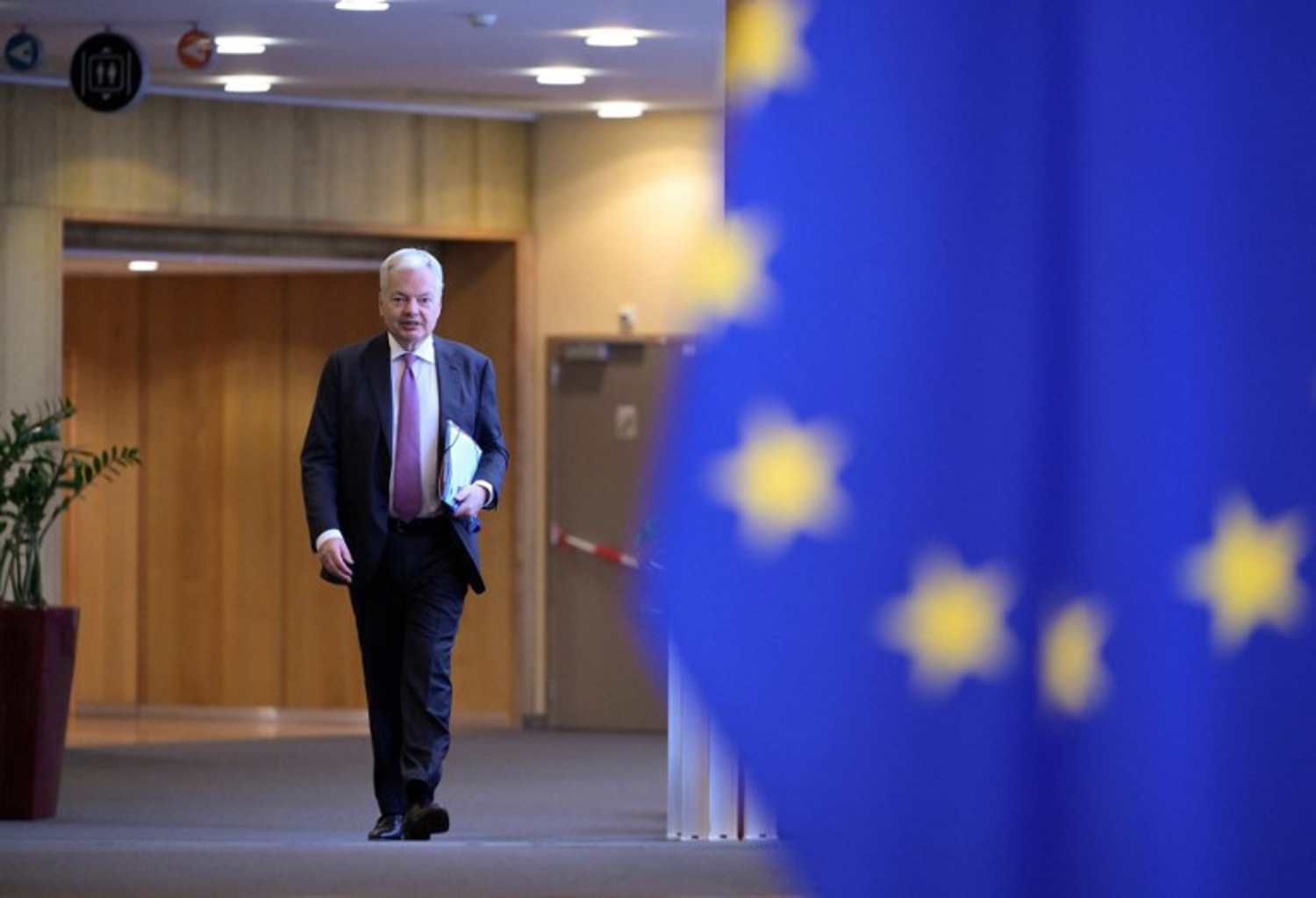Belgium's former European Commissioner Didier Reynders was searched and questioned by police on Tuesday under suspicion of money laundering through the purchase of lottery tickets.
The Public Prosecutor confirmed the operation following reports by Le Soir and the investigative media platform Follow The Money.
The investigation has been underway since 2023 under the jurisdiction of the Brussels Public Prosecutor. The targeted period spans several years, extending at least until last year.
The European Commission denied knowing about the money laundry allegations, but confirmed it will cooperate with Belgian authorities.
Authorities suspect money laundering through the purchase of lottery tickets by the senior figure of French-speaking liberals MR. The Financial Information Processing Unit noted suspicious transactions over a long period, involving a "relatively significant" amount.
Specifically, Reynders is suspected of purchasing "e-tickets", which are vouchers ranging from €1 to €100 euros, available at various points of sale and transferable to a National Lottery gaming account.
Preliminary findings suggest that some lottery tickets were bought with cash. The winnings were credited to the former minister’s digital account at the National Lottery and then transferred to his current account.

EU Commissioner for Justice Didier Reynders arrives for a College meeting at the EU headquarters in Brussels on October 30, 2024. Credit: Belga / AFP
As the investigation covers a period when Reynders was a federal minister and later a European Commissioner, he enjoys immunity, even though he no longer holds any office, Le Soir explains.
This immunity does not prevent the investigation and searches from taking place, but it currently excludes any deprivation of liberty.
At a European level, it only applies to acts carried out in an official capacity, a spokesperson for the Commission stated on Wednesday. In the event that a Commissioner acts in a way that is incompatible with their duties, they can be referred to the Court of Justice of the EU and lose EU-related benefits.
A request to waive the immunity would require a decision by the Commission itself.
'Common technique'
Money laundering through gambling is a relatively common technique, explained tax law professor Michel Maus (VUB) on Radio 1 on Wednesday about the investigation into Didier Reynders (MR).
Gambling companies are required to have an internal service to detect any potential money laundering attempts, Maus told Flemish programme De Ochtend.
This process is essential to deposit money into a bank account, as banks must verify the source of funds appearing in their clients’ accounts, Maus added.
Gambling winnings can appear as legitimate income, but gambling companies must also adhere to regulations and have an internal service to detect and report suspicious activities to the Financial Intelligence Processing Unit (CTIF).
To avoid detection, those attempting to launder money often use a technique known as "smurfing," which involves breaking down large sums into smaller amounts.
Maus noted that while individual transactions might escape notice, prolonged monitoring could uncover such practices.
Someone spending €1,000 or €2,000 monthly via an ‘e-tickets’ system would inevitably be noticed over time, he concluded.
This story was updated with new information.

